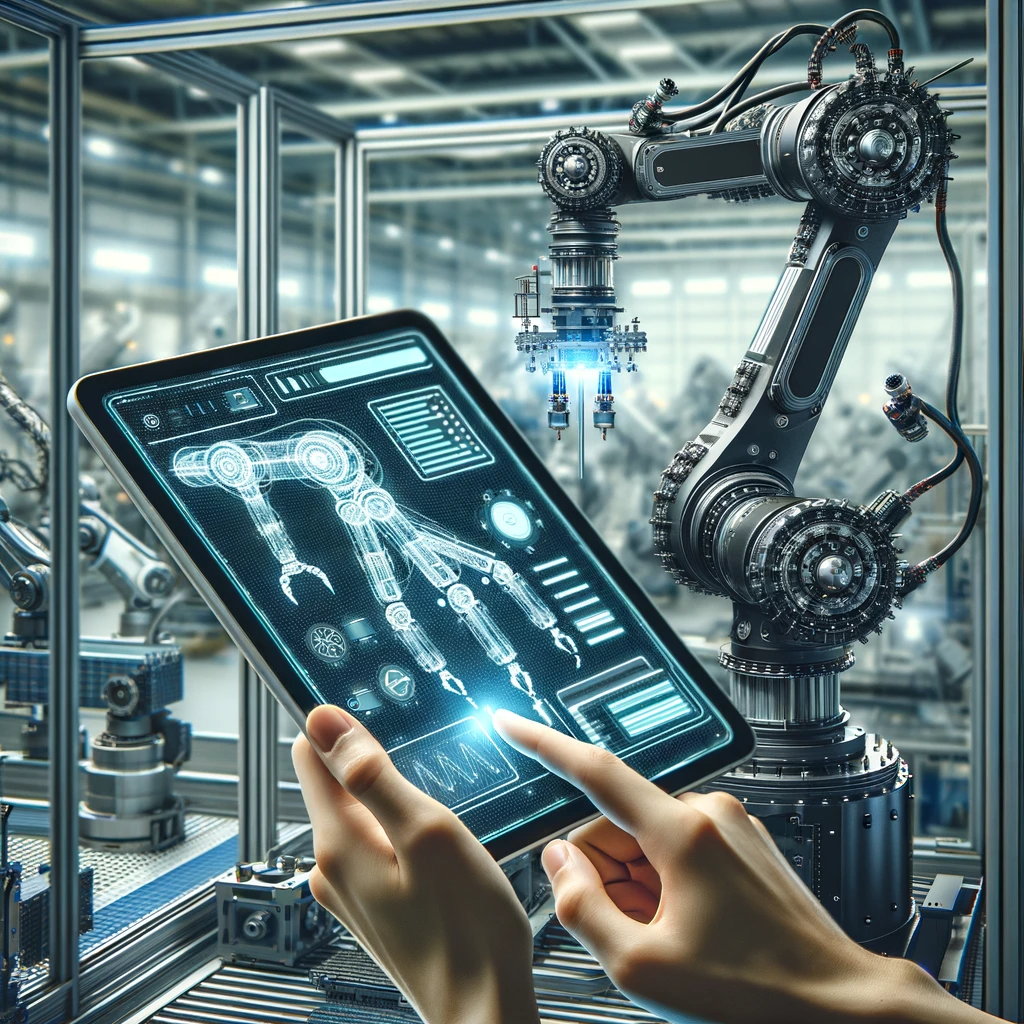The Future of Work: How AI is Transforming Industries
Artificial Intelligence (AI) has initiated an unprecedented transformation across various sectors, signaling a new era in the future of work. This powerful technology is not just changing how businesses operate; it's reshaping entire industries. In this exploration, we delve into how AI is revolutionizing different sectors and offer insights into future trends and strategies for businesses to adapt.
Healthcare: Precision and Personalization
In healthcare, AI's impact is profound. It's ushering in an era of precision medicine and personalized care. AI algorithms analyze vast datasets of medical records to identify patterns that humans cannot. This capability enables early disease detection, predictive diagnostics, and personalized treatment plans. For instance, AI-driven imaging tools can detect anomalies such as tumors earlier and more accurately than ever before. As we move forward, AI will continue to enhance patient care, reduce operational costs, and even assist in complex surgeries.
Manufacturing: Efficiency and Innovation
The manufacturing sector has embraced AI to revolutionize production processes. Smart factories, powered by AI and the Internet of Things (IoT), are becoming the norm. These facilities use AI to optimize production workflows, predict maintenance needs, and minimize downtime. Robotics, combined with AI, is performing tasks with precision and speed, leading to significant efficiency gains. As AI continues to evolve, it will lead to the creation of more sophisticated robots and production techniques, driving innovation and growth.
Finance: Security and Decision Making
In finance, AI is a game-changer. It's enhancing customer experiences, bolstering security, and aiding in decision-making. AI algorithms analyze market trends and customer data to provide personalized investment advice and optimize portfolios. They also play a crucial role in detecting fraudulent activities by identifying unusual patterns in transaction data. As AI technology advances, we can expect even more robust financial tools and services, offering higher accuracy in predictions and risk assessments.
Retail: Personalization and Efficiency
AI is transforming the retail industry by personalizing the shopping experience and streamlining operations. AI-driven recommendation engines analyze browsing and purchase history to suggest products that customers are more likely to buy. In warehouses, AI-powered robots efficiently sort and package goods, reducing processing times. As AI evolves, it will enable even more personalized shopping experiences and more efficient supply chain management, revolutionizing how we buy and sell.
Transportation: Safety and Sustainability
In the transportation sector, AI contributes to safer and more sustainable practices. Autonomous vehicles, equipped with AI, are becoming a reality. They promise to reduce accidents caused by human error and optimize routes to decrease fuel consumption. AI also helps in predictive maintenance of vehicles and infrastructure, ensuring they are safe and efficient. The future of transportation is one of self-driving cars, smarter public transport systems, and more efficient logistics, all powered by AI.
Education: Accessibility and Personalization
AI's impact on education is transformative, making learning more accessible and personalized. AI-driven platforms can adapt to individual learning styles, pace, and preferences, providing a personalized learning experience. They can also automate administrative tasks, allowing educators to focus more on teaching. As AI advances, it will enable more immersive and interactive learning experiences, making education more engaging and effective.
Adapting to the AI Revolution
As AI continues to transform industries, businesses must adapt to stay competitive. Here are some strategies:
Invest in AI Literacy: Ensure your team understands AI and its potential impact on your industry. Regular training and workshops can keep everyone up-to-date.
Foster Innovation: Encourage a culture of innovation where employees are motivated to find ways to integrate AI into your operations.
Collaborate with AI Experts: Partner with AI specialists or consultancies to develop and implement AI solutions tailored to your specific needs.
Focus on Data: AI relies on data. Ensure you have a robust data management system in place to leverage AI effectively.
Prioritize Ethics: As you adopt AI, consider the ethical implications. Ensure your AI solutions are fair, transparent, and respect privacy.
The Road Ahead
The future of work in an AI-driven world is both exciting and challenging. Industries are at the cusp of a revolution, with AI acting as the catalyst for profound changes. As we look ahead, the convergence of AI with other emerging technologies will unlock new possibilities, creating a world where businesses operate with unprecedented efficiency and individuals receive services that are more personalized and accessible.
However, this future also comes with its set of challenges. The workforce will need to adapt, acquiring new skills to work alongside AI. Businesses will have to navigate ethical considerations and manage the societal impact of these transformations.
In conclusion, AI is not just a technological shift; it's a pivotal moment in our history. The industries that embrace this change, adapt their strategies, and prioritize ethical considerations will not only survive but thrive in this new era. The future of work is here, and it's powered by AI. Businesses ready to take this leap will lead the charge into a prosperous and innovative future.

